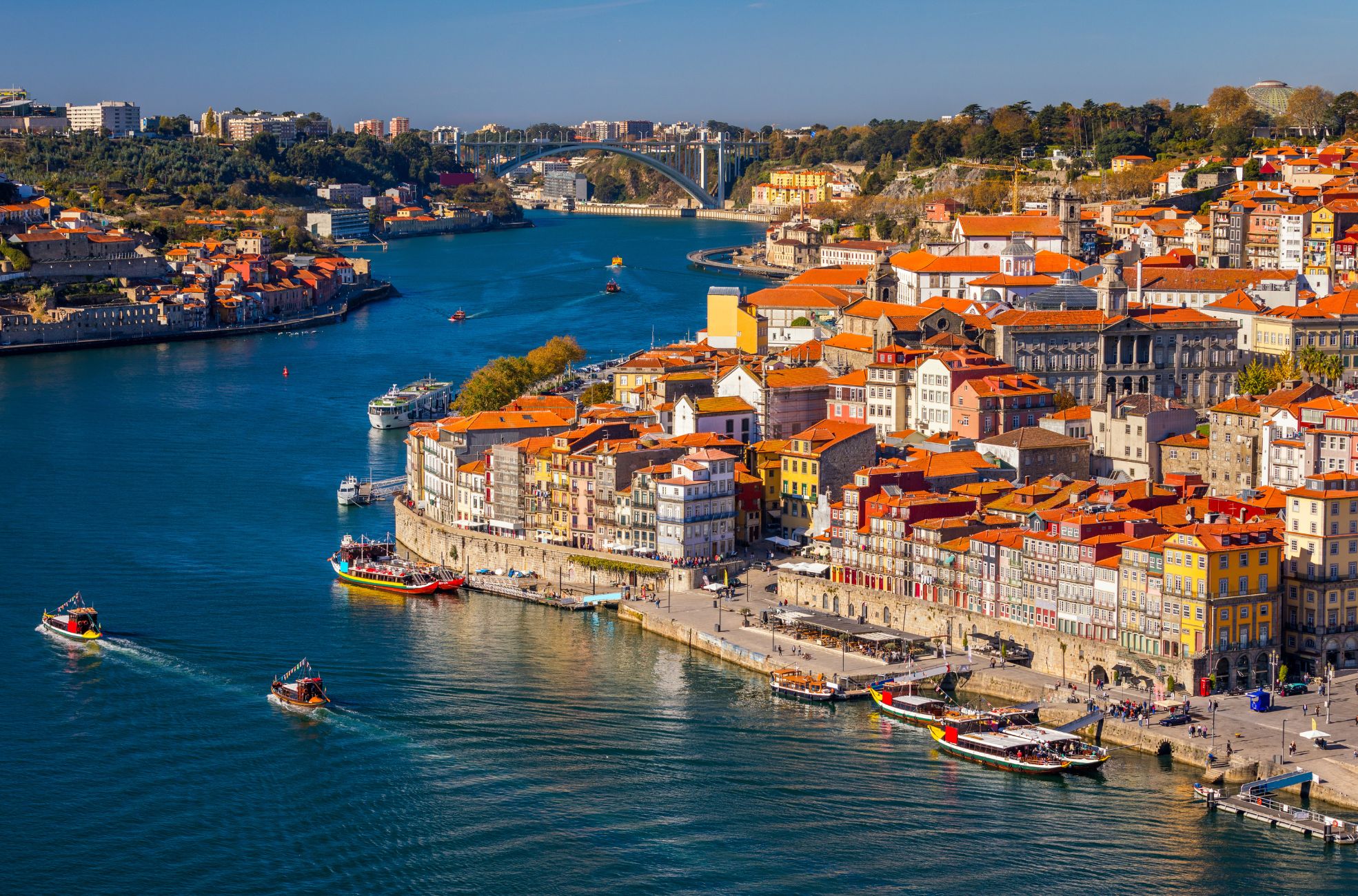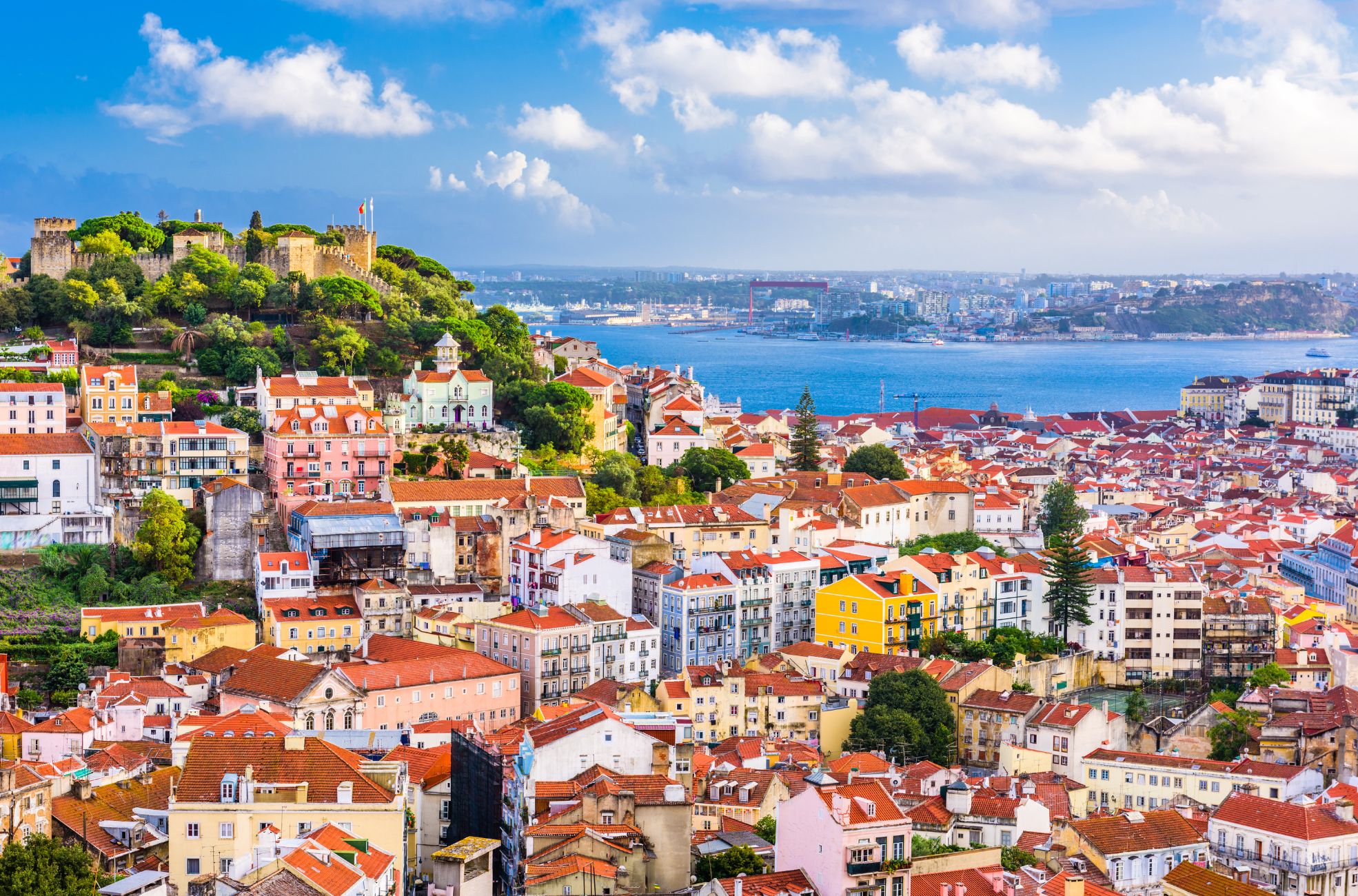Navigating the taxes in Portugal can be a complex task for expats, considering various tax obligations when living or investing in this sunny Iberian nation. This guide provides a comprehensive overview of the Portuguese tax system, designed to be particularly attractive for expatriates and residency investors. Understanding the intricacies of personal income tax, corporate tax, VAT, and real estate tax is crucial for anyone looking to make Portugal their new home.
From the Non-Habitual Residency (NHR) scheme to the fiscal responsibilities under the Golden Visa Program, this guide covers all you need to know to ensure tax compliance and take advantage of potential benefits in Portugal. Whether you’re a retiree, a digital nomad, or a business owner, this guide will help demystify the tax process and keep you informed about your fiscal duties.
The Portuguese Tax System
Portugal’s tax system is tailored to be attractive for expatriates and individuals who’ve obtained residency through investment. This system encompasses a variety of taxes and is managed by the Tax and Customs Authority, known locally as the Finanças. If you’re considering a move to or investment in Portugal, it’s important to get to know the various taxes, what fiscal residency means, and the tax year, along with filing deadlines.
Types of Taxes in Portugal
The tax landscape in Portugal includes several taxes that affect residents and non-residents. Personal income tax, or IRS (Imposto sobre o Rendimento das Pessoas Singulares), is charged on the income of those living in Portugal. It’s also levied on non-residents who earn income within the country. For 2023, the rates for individuals range from 14.5% to 48%, depending on how much you earn.
Non-residents are taxed at a flat rate of 25% on their Portuguese-sourced income. If you own property, you’ll need to pay the IMI (Imposto Municipal Sobre Imóveis), akin to council tax. You might also encounter the AIMI (Adicional Imposto Municipal Sobre Imóveis) or Portuguese Wealth Tax on higher-value properties.
Capital gains tax applies to profits from the sale of capital assets. Businesses face a flat corporate tax rate of 21% on taxable profits. Value-added tax (VAT), or IVA, is another significant tax, with three different rates applied to goods and services since its introduction in 1986.
The inheritance tax in Portugal is quite favorable, with no tax applied to direct family members. Plus, there are no net wealth taxes in Portugal.
The Role of the Finanças in Tax Collection
The Tax and Customs Authority, Finanças, is responsible for tax collection and enforcement in Portugal. It provides services related to taxes and customs, such as issuing Tax Identification Numbers (NIF). The Finanças also handle tax returns and oversee business registrations.
As an expatriate or residency-by-investment holder, you’ll need to deal with Finanças for your tax matters. This includes getting a NIF, which is essential for any financial activity in Portugal. For non-EU residents with economic interests in Portugal, having a fiscal representative is mandatory. This person helps communicate with the tax authorities and ensures you meet your tax obligations.
Fiscal Residency and Its Implications
Fiscal residency is an essential concept in the Portuguese tax system. If you spend more than 183 days in Portugal within a calendar year or have a permanent residence there, you’re considered a tax resident. This means you’re taxed on your worldwide income at progressive rates. On the other hand, non-residents are only taxed on income that comes from Portugal.
The Non-Habitual Residency (NHR) scheme, introduced in 2009, offers significant tax benefits for foreign residents, such as tax exemptions or a flat 20% tax rate on foreign-sourced income for ten years. The Portugal Golden Visa Program, a five-year residency-by-investment initiative for non-EU nationals, also affects your tax situation. If you’re part of this program, you need to be aware of your tax responsibilities in Portugal.
Tax Year and Filing Deadlines
The tax year in Portugal aligns with the calendar year, starting on January 1 and ending on December 31. You generally submit tax returns between April and June of the following year. They can be filed online via the Portal das Finanças or through printed forms. For corporate tax returns, the submission period is from April 16 to May 16 each year.
Married couples have the option to file jointly, reporting their combined income. Portugal uses a pay-as-you-earn (PAYE) system, which is reconciled with the annual tax return filing. If you’re an expatriate, especially from a country with a tax treaty with Portugal, like the United States, it’s crucial to keep track of these deadlines to avoid double taxation and benefit from relevant agreements.

Personal Income Taxes for Residents
Understanding Progressive Tax Rates
Portugal’s progressive income tax system ensures that individuals contribute to the state coffers in proportion to their earnings. An additional solidarity surcharge of 2.5% to 5% is levied on annual incomes exceeding USD 86,679, which is allocated to support social initiatives.
Reporting Income: Categories and Deductions
Residents must declare earnings from various categories such as employment, self-employment, investment returns, rental proceeds, and pensions. Each category is subject to specific regulations and applicable rates. For instance, capital gains from the disposal of assets are taxed at 28%.
It’s essential to be aware of the available deductions, including a general allowance and potential reductions for having dependents, which can reduce the amount of income subject to taxation.
Special Expat Tax Regime: The NHR Program
The NHR program provides a beneficial tax framework for new residents, offering a 20% flat rate on Portuguese-sourced income from certain professions and a potential exemption on foreign-sourced income, subject to specific conditions. Applicants must not have been tax residents in the five years preceding their application to be eligible. They must register for the program by March 31, the year they establish residency.
Filing Your Personal Income Tax Return
Residents are required to submit an annual tax return, with the option for married individuals to file jointly, thereby sharing their collective income for taxation purposes. Taxpayers must report all sources of income and claim any applicable deductions. Those who owe taxes may have the option to pay in instalments if these amounts still need to be collected through the PAYE system. Timely filing is essential to avoid penalties and ensure compliance with Portuguese tax regulations.
Corporate Taxes for Businesses
Standard Corporate Tax Rate
Companies that are tax residents in Portugal are subject to CIT on their global income. For those operating on the mainland, the CIT rate is 21%. However, businesses in the Autonomous Regions of Madeira or the Azores benefit from a reduced CIT rate of 14.7%, extending to PEs of foreign companies in these areas.
Small Business and SME Taxation
Recognizing the importance of SMEs to the national economy, Portugal offers a reduced CIT rate of 17% on the first EUR 50,000 of taxable income for these entities. The rate is further reduced to 11.9% in Madeira or the Azores.
Accounting and Reporting Requirements
Companies must file their CIT return electronically by the end of May following the income year. Tax payments are due in three installments in July, September, and December, with a final payment at the time of the annual return submission.
Businesses must adhere to stringent accounting and reporting regulations, including the submission of a tax file, which encompasses the transfer-pricing file, by mid-July after the end of the tax period. Delays in payment or filing can result in interest charges, and non-compliance with these regulations can lead to substantial fines.
Tax Incentives for Companies
Portugal provides various tax incentives to stimulate business investment and innovation. Eligible investment projects that significantly impact the economy and generate employment may qualify for a tax credit ranging from 10% to 25% of the investment amount.
Companies engaged in R&D can deduct certain expenses from their CIT. The patent box regime offers an 85% exemption on income from specific intellectual property rights, promoting innovation and the creative sectors.
The MIBC offers a special tax regime until 2027 for businesses that obtain the necessary license by the end of 2023. This includes a CIT rate of 5% on eligible foreign-source income and an exemption from WHT on dividends paid to non-resident shareholders.
Additionally, the tax system allows for offsetting taxes paid abroad against the CIT due in Portugal, subject to certain conditions. This may involve applying a tax credit to prevent international economic double taxation, provided a minimum shareholding in the subsidiary is maintained for a specified duration.

Value-Added Tax (VAT) Details
VAT Rates and Regulation
There are also intermediate VAT rates for particular categories. A 13% rate applies to certain consumables, admission to cultural events, and dining out. Essential goods such as some food items, water, pharmaceutical products, and medical devices for those with disabilities are subject to a super-reduced rate of 6%.
Recent legislative changes have expanded the scope of the 6% rate to encompass additional items. Now, this advantageous rate includes preserved fish and shellfish, plant-based butter, and alternatives to dairy products. The sale or repair of bicycles, access to cultural events, and the installation of renewable energy heating systems are also eligible for this lower rate. A temporary zero VAT rate on staple foods, including vegetables, fruits, oils, fish, and meat, is in effect until the end of 2023 to alleviate the financial burden on households.
Exemptions and Special Situations
The Portuguese VAT framework includes an exemption for small taxpayers who meet specific requirements, such as staying within a certain revenue threshold. This exemption aims to reduce bureaucratic obligations for smaller enterprises. Public bodies are generally exempt from VAT registration unless they partake in commercial activities that are not part of their public remit.
Portugal’s VAT legislation does not permit the consolidation of VAT reporting for related entities, necessitating separate VAT registrations for each.
VAT Registration and Compliance
Businesses engaging in taxable activities must register for VAT. The registration threshold for domestic companies is scheduled to increase incrementally until 2025, with a target of EUR 15,000. For the current year, the threshold is EUR 13,500.
Registration can be completed through digital channels or at a local tax office, where businesses are assigned a NIF.
Non-resident entities without a permanent establishment in Portugal or another EU country must also register for VAT. They may be required to appoint a fiscal representative. The OSS simplifies VAT matters for non-resident companies providing B2C services throughout the EU.
Refunds for VAT to Tourists and Non-residents
Tourists and non-EU residents can receive VAT refunds on eligible purchases exceeding USD 54, provided the goods are exported. The e-Taxfree Portugal System facilitates these refunds, which can be processed at major exit points such as airports.
Non-resident VAT-registered entities may also reclaim VAT incurred on business activities in Portugal, subject to specific criteria and reciprocal arrangements.

Real Estate and Property Taxes
Stamp Duty on Transactions
Purchasing property in Portugal incurs stamp duty, calculated at 0.8% of the property’s value. This fee is obligatory and must be paid before the completion of the transaction. For mortgages, the stamp duty is 0.60% if the repayment period is over five years and 0.5% for shorter terms. Notaries, who are essential in the property transaction process, collect this tax on behalf of the state.
Notary and land registry fees typically range from USD 1085 to USD 1,625, and legal costs associated with property transactions are generally about 1% – 1.25% of the property’s value. A building survey is advisable to ensure the property is free from any issues, with costs varying based on size.
Annual Municipal Property Tax (IMI)
Property owners are subject to IMI, with rates for urban properties ranging from 0.3% to 0.45% and 0.8% for rural properties. The rate for properties revalued after 2004 is between 0.2% and 0.5%, while those assessed before 2004 are taxed at 0.4% to 0.8%. Properties held by corporations in blocklisted jurisdictions are taxed at 7.5%.
Exemptions are available for properties used as a primary residence or for rental, contingent on the property’s tax registration value and the owner’s income.
Tax on Real Estate Transfer (IMT)
IMT is levied on property acquisitions, with the rate based on the higher purchase price or patrimonial value. For rural land, the rate is 5%, and for commercial properties or building plots, it’s 6.5%. There’s a threshold for private property intended as a primary residence below which no IMT is due: USD 100,090 on the mainland and USD 125,138 in the autonomous regions.
IMT is calculated on a sliding scale, requiring careful attention during property acquisition.
Rental Income Taxation
Rental income is subject to a 15% tax on the net amount withheld at the source. Non-resident property owners must appoint a fiscal representative to manage their tax responsibilities, including calculating and paying taxes related to rental income.
Owners of property valued above USD 650,000 are subject to AIMI, with rates of 0.4% for companies and 0.7% for individuals, increasing to 1% for properties over USD 1.08 million.
For capital gains from property sales, non-residents pay a flat rate of 28%. At the same time, residents include gains in their overall income and are taxed at the appropriate IRS rates. Tax residents may be exempt from capital gains tax when selling their primary residence and reinvesting in another property within Portugal within a specified period. Agency fees for property sales have been deductible from capital gains since July 2008. Although inheritance tax for direct family members was abolished, a 0.8% stamp duty remains, with a 10% rate for other beneficiaries.
Navigating Portuguese Taxation
Navigating the tax system in Portugal may appear daunting at first, but with the right knowledge and preparation, it can offer significant benefits, especially for expats and residency-by-investment holders. Understanding your fiscal responsibilities is crucial whether you’re captivated by the allure of the sun-drenched Algarve coast or the historic charm of Lisbon’s neighborhoods.
With insights on everything from progressive income taxes and VAT to property-related levies, you can confidently approach your Portuguese adventure. Engaging with competent tax advisors, familiarizing yourself with the NHR program’s nuances, and adhering to deadlines will ensure you’re well-positioned to take full advantage of Portugal’s tax system while remaining compliant. Welcome to your new chapter in beautiful Portugal, where clear skies and favorable tax policies await.
FAQs
Is Portugal a Good Tax Haven?
Portugal is not typically classified as a tax haven. A tax haven is generally defined as a country that offers foreign individuals and businesses little or no tax liability in a politically and economically stable environment. While Portugal does offer some favorable tax policies, especially for expats under the Non-Habitual Resident (NHR) program, it still maintains a range of taxes, such as income tax, VAT, and corporate tax. The NHR program provides reduced tax rates and certain tax exemptions for ten years but does not eliminate taxes entirely.
What are the Tax Advantages of Living in Portugal?
Portugal’s most notable tax advantage is the Non-Habitual Resident (NHR) regime. This regime is designed to attract expats and offers them favorable tax treatment for ten years. Under NHR, foreign pension income may be taxed at a flat rate of 10%, and some types of foreign income, like dividends, interest, and rental income, may be exempt from Portuguese tax. Additionally, Portuguese-sourced employment and self-employment income may be taxed at a flat rate of 20% if derived from high-value-added activities. However, general income tax rates and VAT still apply, and residents are subject to worldwide income taxation.
Is Portugal Tax-Free for Expats?
Portugal is not tax-free for expats. Expats are subject to Portuguese tax laws, including income tax on residents’ worldwide income. However, under the Non-Habitual Resident (NHR) program, expats can benefit from reduced tax rates and exemptions on certain types of foreign income for a period of ten years. This program makes Portugal an attractive destination for expats but does not exempt them from all forms of taxation.
How Much Tax Do Foreigners Pay in Portugal?
The tax foreigners pay in Portugal depends on their residency status and income. As tax residents (those who stay in Portugal for more than 183 days in a tax year or have a habitual residence there), foreigners are taxed on their worldwide income at progressive rates ranging from 14.5% to 48%. Non-residents are taxed at a flat rate of 25% on their Portuguese-sourced income. Under the NHR regime, specific foreign income may be exempt from Portuguese tax, and certain Portuguese-sourced income may be taxed at a preferential flat rate of 20%. The NHR program significantly affects the tax situation for eligible expats, but general tax rates apply outside of this regime.





